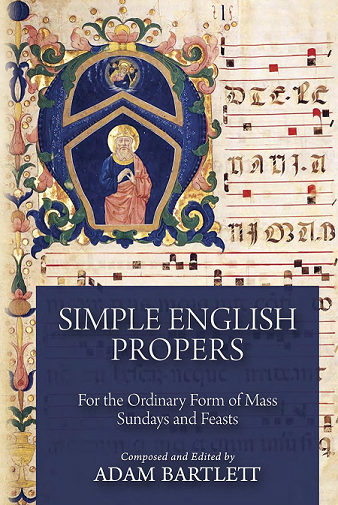I could post these all day really, so I’ll stop, but I wanted you to hear that entrance for Pentecost. This will be sung at the Sacred Music Colloquium.
Communion Antiphon to Use Throughout the Year
Just for starting out, here is what you can with the Simple English Propers
COMMUNION (Option 2) • 15th Sunday in Ordinary Time from Church Music Association of Amer on Vimeo.
Simple English Propers Practice Video: Holy Trinity
This is to give you an idea of what the Simple English Propers sound like, using this Introit. This is not a performance video but a practice video. We hope to complete one of these for every single chant of the year (Sundays and Feasts).
Ricardo Mutti on Church Music
The music director of the Chicago Symphony has thrown his support behind the drive by Pope Benedict XVI to revive the tradition of sacred music.
”The Pope is right when he says it is necessary to bring our great musical heritage back into churches,” said Ricardo Muti. The Italian conductor said that the revival in church music “cannot happen outside the great traditional path of the past, of Gregorian chants and sacred polyphonic choral music.”
Muti said that he has no objection to the composition of new sacred music, but resents the use of pop tunes. “When I go to church and I hear four strums of a guitar or choruses of senseless, insipid words, I think it’s an insult,” he said. Offering mediocre music, when the Church boasts a priceless treasury of compositions, shows “a lack of respect for people’s intelligence,” he said.
Just FYI and No Further Comment Necessary
U.S. vs. England & Wales on the Hymn Option
The Propers and Hymns Debate
I was just reading through Pray Tell’s vast comment thread on the Fr. Ruff’s post on GIA’s hymn-stuffed Worship 4, which, as I’ve noted, contains no settings of propers, which are the actual liturgical texts of the Mass. A few points here.
1. It’s a great development that this issue is finally being discussed. A few years ago, one could hardly find any discussion of the most peculiar liturgical development of the last half century: the near complete abandonment of Mass propers as the source of music.
2. Several commentators plea for diversity and a “take your pick” approach of hymns or propers. Problem: there are hundreds of hymn-only books in print but there is not a single book in print that provides music in English for all the Mass propers, except of course the Anglican Use Gradual (of which I’m an advocate, knowing full well that there are reasons why this book cannot become standard in parish life). Otherwise, the only in-print resource for sung propers is the full loaf and the ultimate achievement of the ideal: the Graduale Romanum. It should go without saying that there is a vast gulf between current practice and that ideal, and that we need some stepping stones along the way. My point is that it’s hard to have diversity without choice.
3. In about two weeks, the situation described in #2 will changed, with two very important books: the Simple English Propers (Bartlett) and Simple Choral Gradual (Rice). They will come out within days of each other, be seen for the first time at the Sacred Music Colloquium, and be available on Amazon shortly thereafter.
In general, there is nothing wrong with making the intellectual and liturgical case for propers and why they should not be replaced by hymns. In the end, however, the way all this settles out will really depend on parish experience with various models. We will soon be in a much better position to judge.





